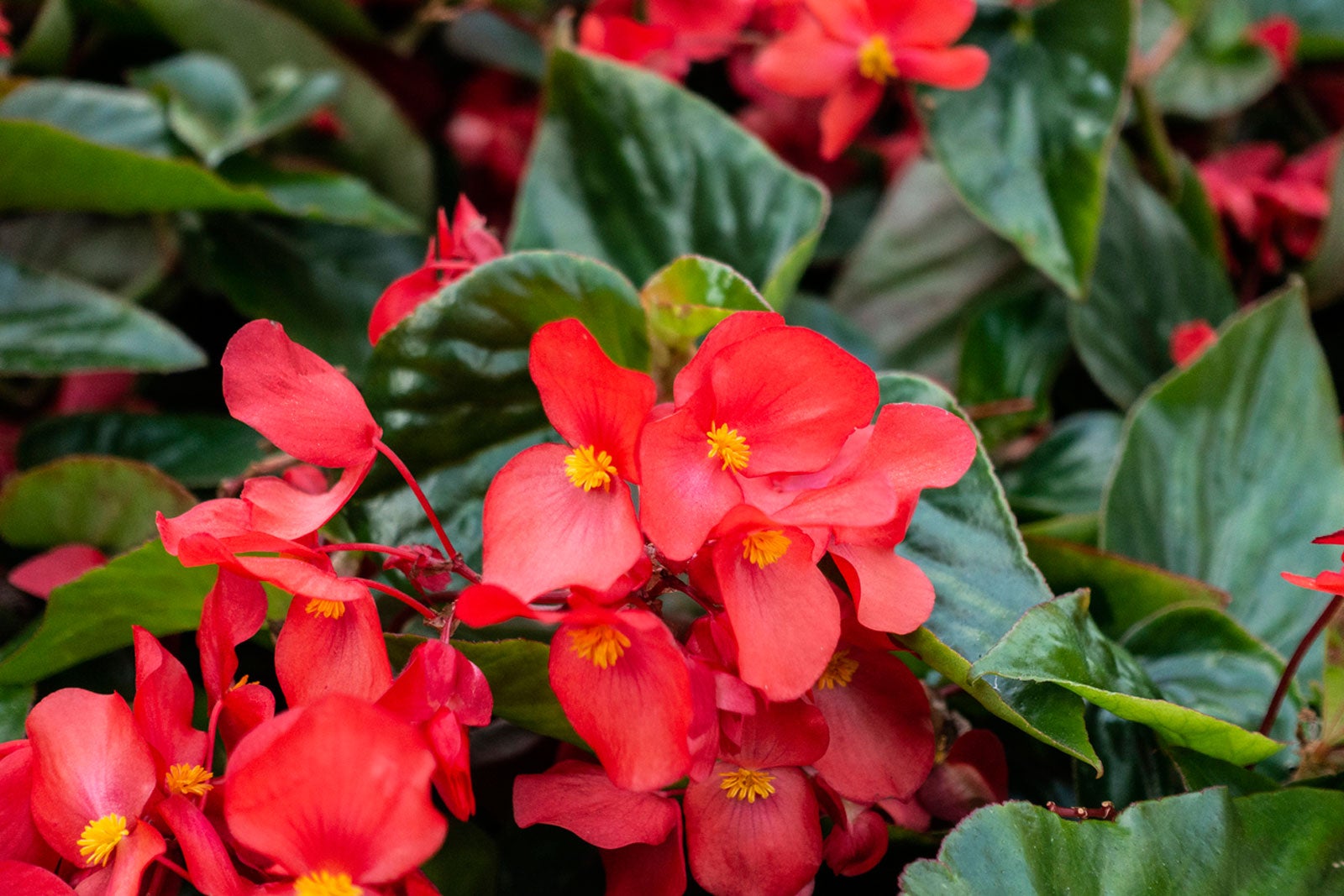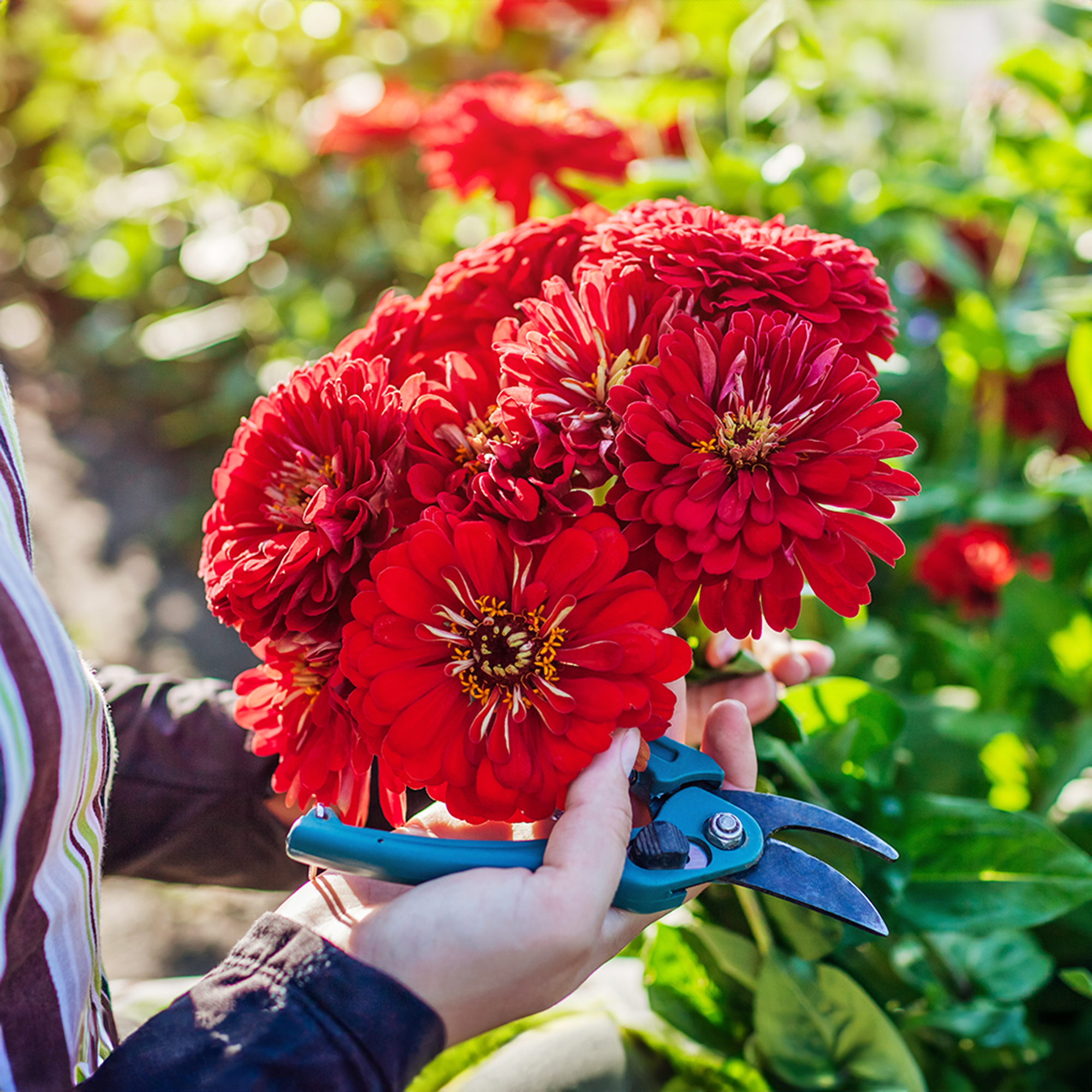Wax Begonia Care - How To Grow Annual Begonias


Teo Spengler
Annual begonias, also called wax begonias, are a mainstay of the shade garden, bringing splashes of tropical color to otherwise dim corners of the landscape. We've got all the tips for growing begonias successfully. Read on for more.
Quick Facts about Annual Begonia:
- Botanical name: Begonia x semperflorens-cultorum
- Height: 6-12 inches (15-30 cm)
- Spread: 6-12 inches (15-30 cm)
- Sun exposure: shade to partial shade outdoors; sunny location indoors
- Soil requirements: moderately humus rich, well-drained moist soils
- Hardiness zones: USDA zones 9 or 10 and above, often grown as annuals
- When to plant: Start seeds indoors in January or February or 6-8 weeks before last spring frost date
Basic Wax Begonia Care
Wax begonia, also called wax leaf begonia or fibrous begonia, is a popular bedding plant. It provides colorful clusters of flowers and glossy foliage for shaded landscapes or bright interiors. Wax begonias are often grown as annuals and are considered the easiest begonias to grow. They bloom continuously from early spring. The flowers - red, pink or white - contrast with the waxy rounded leaves.
Though frequently grown as annuals - thus the common name annual begonias - they are actually a tender perennial that can overwinter in warm zones with frostfree winters. Whether treated as annuals or perennials, they require little maintenance once established. Wax begonia care is particularly easy since the plants tolerate heat, drought, and heavy shade.
Light & Water Requirements
Begonias are known as shade plants. However, for wax begonias, sun or shade locations can work. These are great compact flowering plants for dappled hade or part sun locations. Once the plants have established root systems, though, they can also thrive in some sun. Bright areas are ideal for begonia houseplants.
You should water fibrous begonias consistently over the growing season for best results. If you miss a few days, they are likely to survive since their thick and waxy leaves reduce water loss in hot weather. A thick layer of mulch in early summer helps them to hold in water.
Soil & Fertilizer Needs
When it comes to soil, begonias are a little needier. They require soil that drains well and do best in moist soils with a high amount of organic content. These plants are not heavy feeders, so if you want to use fertilizer, do so sparingly.
Problems, Pests & Diseases
Gardeners report few problems with their wax begonias as long as they get proper cultural care. However, those grown in soil with poor drainage or in a humid area without air circulation may be vulnerable to powdery mildew, botrytis, and stem rot. As far as insect pests go, keep an eye out for mealybugs and thrips. Slugs and snails are also potential problems.
Gardening tips, videos, info and more delivered right to your inbox!
Sign up for the Gardening Know How newsletter today and receive a free copy of our e-book "How to Grow Delicious Tomatoes".
Wax Begonia Propagation
You can propagate fibrous begonia in any of a variety of methods. They can grow from seed but germination is difficult and the seeds are small. Begonias can also be propagated by cuttings or division. However, most gardeners simply purchase plants in the springtime, especially if they are growing them as annuals.
Varieties of Wax Begonia
Anyone seeking a taller sort of begonia should check out 'Barbara Rogers,' a clumping variety that can grow to 5 feet (1.5 m) tall in USDA zones 7 - 9. It features white flowers all season long. 'Prelude White' also grows white flowers.
Other specialty varieties include 'Emperor Red' and ‘Senator Red’ for red flowers. The 'Party Pink' cultivar grows pink flowers and bronze leaves, while 'Whopper Rose Bronze Leaf' produces large pink flowers and bronze leaves.

Becca Badgett was a regular contributor to Gardening Know How for ten years. Co-author of the book How to Grow an EMERGENCY Garden, Becca specializes in succulent and cactus gardening.
- Teo SpenglerWriter
-
 Zinnias On Repeat: 10 Glorious Cut-And-Come-Again Varieties For Endless Summer Bouquets
Zinnias On Repeat: 10 Glorious Cut-And-Come-Again Varieties For Endless Summer BouquetsThese zinnia varieties keep giving all summer, making them the perfect choice for dedicated cutting gardens – or just the occasional homegrown bouquet.
By Ellen Wells
-
 Create A Romantic Garden Straight Out Of Bridgerton: Regency Era Romance In Your Garden
Create A Romantic Garden Straight Out Of Bridgerton: Regency Era Romance In Your GardenTry some romantic garden ideas straight out of Bridgerton. Flowers and gardens in the Regency era were lush and charming and you can get the same look!
By Bonnie L. Grant